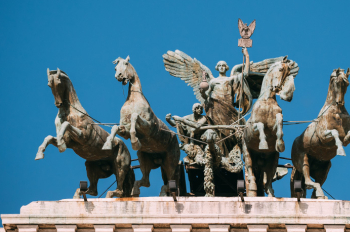
Germany’s national election on Feb. 23, 2025, the 20th since the Federal Republic’s establishment in 1949, saw a significant victory for right-wing groups. However, Germany’s Evangelical Alliance co-leader has called for respect and unity between opposing factions, urging Christians to pray as coalition talks begin.
Friedrich Merz, leader of the Christian Democratic Union (CDU) and the Christian Social Union (CSU), secured the largest vote share at 33%, according to Reuters, for seats in the 733-member Bundestag. This election also marked the highest voter turnout since the fall of the Berlin Wall in 1989.
Merz, widely expected to be Germany’s next Chancellor, expressed optimism on X, formerly Twitter, stating he hoped for a new government by Easter. “We are living in a time of great challenges and crises,” Merz wrote. “I was delighted to receive congratulations from Germany and abroad. Together with our allies, Germany will make a contribution to freedom and security in the world.”
However, the success of Alice Weidel’s Alternative for Germany (AfD) has garnered significant attention. The far-right party saw the largest vote share for such a group since World War II, capturing 24.1% of the vote.
“We are thankful to all voters and the many committed campaigners. The AfD was able to double its result – an incredible success that makes it clear: the citizens want political change!” Weidel wrote on X.
The American Jewish Committee (AJC) in Berlin expressed concern about the AfD’s success, calling it deeply alarming. “The fact that the antisemitic AfD party obtained nearly 1/5 of the votes in Germany’s federal election today is deeply alarming,” the AJC wrote on X. The group has previously criticized the AfD for its ties to antisemitic rhetoric, citing AfD politician Björn Höcke’s controversial remarks about Berlin’s Holocaust Memorial.
Weidel, whom U.S. Vice President Vance met recently, has also been vocal about her anti-U.S. stance, saying Germany must “stop being a slave state to the U.S.,” according to the AJC. Germany’s domestic intelligence agency is reportedly monitoring the AfD for potential extremist activity.
While the AfD claims to oppose antisemitism, the party attributes rising anti-Jewish sentiment to migration. “Anti-Semitic attitudes that are widespread in some countries of origin have become entrenched in certain migrant groups,” the AfD states on its website.
The Social Democratic Party (SPD) under outgoing Chancellor Olaf Scholz finished in third place with 19% of the vote. The Greens secured 13.5%, while The Left Party garnered 10.2%.
Frank Heinrich, co-leader of the Evangelical Alliance in Germany (EAD), urged Christians to replace the prevailing sense of fear and instability with “favor for each other” in the aftermath of the election. In comments sent to Christian Daily International, Heinrich emphasized the need to focus on “what is really important” as the country moves forward.
Heinrich highlighted the importance of unity and respect, suggesting that Christian values could help Germany stabilize both politically and socially, “to get the favor of the people back.”
In Heinrich’s view, prioritizing one another in line with gospel values should lead to not only strengthening and stabilizing Germany but also having broader, much-needed positive effects across Europe. This could help resolve contentious issues like migration and economic instability. Heinrich added that it would enable Europe to become a unified voice once again in addressing international diplomatic tensions, particularly with countries like Russia, Israel, and the U.S. under the new Trump administration.
Heinrich called for prayer, saying it was crucial in this time of political uncertainty. “There’s never been a greater place or time for prayer, in favor of constructive work,” he said. “I ask [evangelicals] to pray for three things. Firstly, to pray in the spirit of the Old and New Testament in being diligent citizens. It says in Ezekiel 3:9a: ‘I will make your forehead like the hardest stone, harder than flint.’ We need strong foreheads for the politicians and leaders, and to not be sidetracked by every wind.”
Heinrich added that Christians should pray for political leaders to have “a strong backbone to carry the load” and “a soft, sensitive heart for what is really important” – to have a conscience toward God and responsibility toward others.
Heinrich said evangelicals who approach politicians to offer support should take the time to evaluate “what they really think, want, and see.” He described this as being prayerful in a “middle European spirit,” urging them not to rush to judgment but to act with honor, not in a mob mentality.
“The election is over, but democracy is not over. It now starts again,” he said. “The campaigning ends but there is a new beginning of societal engagement and, as Christians, we should be bearers of hope and translate faith into political relevance. Our priority should be justice and focusing on the weaker people in our society.”





